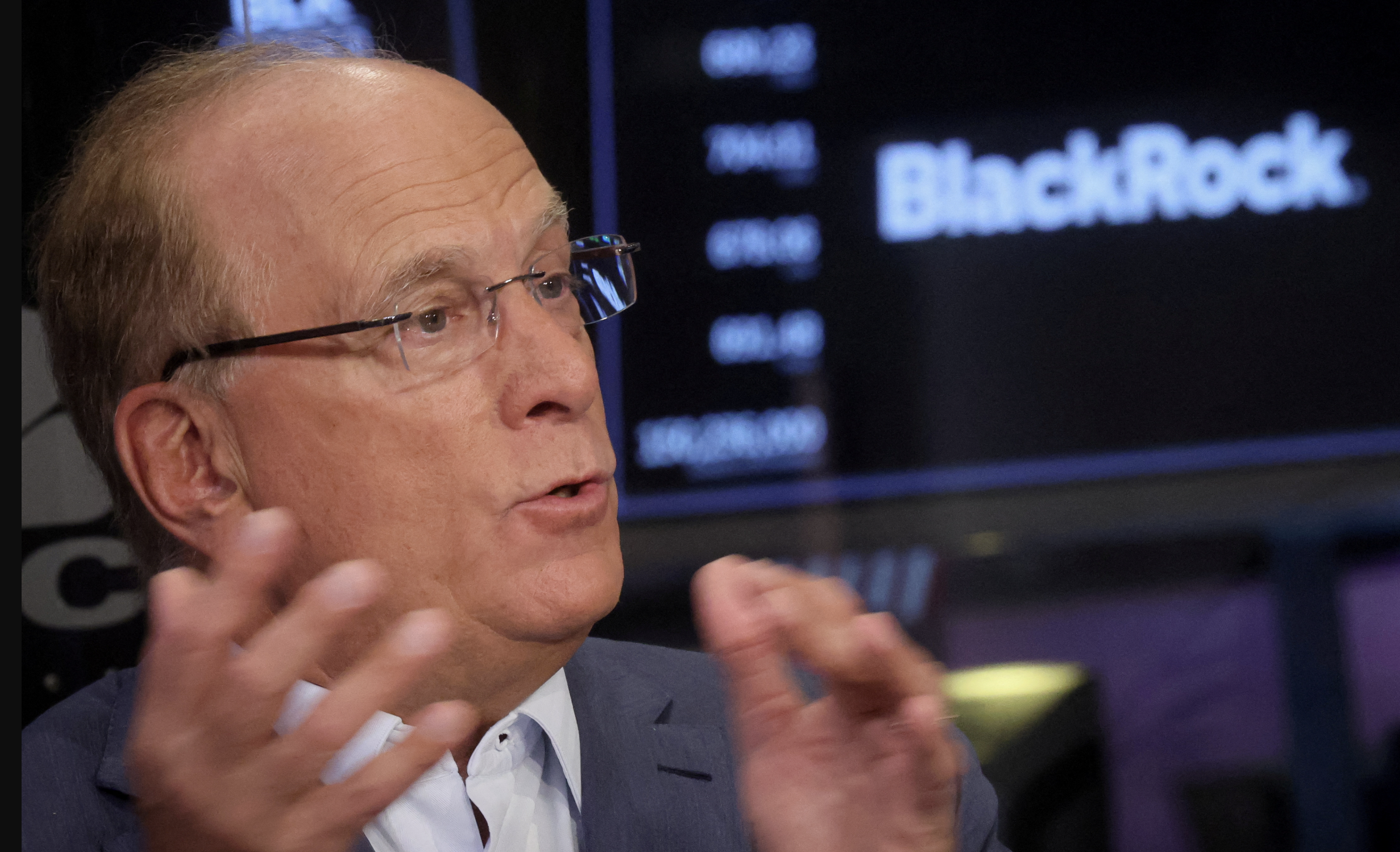USA Buying Bitcoin? A Trump Led Federal Reserve Possibility
The adoption of Bitcoin as a Federal Reserve Asset is no longer a pipe dream, but a realistic possibility. How could this impact its status and long-term value?
Larry Fink, the chief executive officer of BlackRock, recently made a significant statement regarding Bitcoin: “I studied it, learned about it (Bitcoin), and I came away saying okay, you know my opinion 5 years ago was wrong… I believe Bitcoin is legitimate.” This is a notable turnaround for Fink, who had previously been a skeptic of Bitcoin and the broader cryptocurrency space.
This week, a major Bitcoin Conference is scheduled to take place in Nashville, Tennessee, with former President Donald Trump expected to be one of the guest speakers. This would mark the first time a global leader has openly spoken at a pro-cryptocurrency convention. The consensus among analysts is that if Trump were to become president again, he could potentially declare Bitcoin a Strategic Reserve Asset. This would be a historic move, comparable to the removal of the Gold Standard. A Strategic Reserve Asset is a stockpile of resources a country can use in emergencies to stabilize the market, akin to a national savings account.
An example of a Strategic Reserve Asset is the United States’ Strategic Petroleum Reserves (SPR), the largest emergency stockpile of oil in the world. The SPR was created in response to the 1973 oil embargo by OPEC countries, which punished the U.S. for supporting Israel. To avoid dependence on OPEC, the U.S. enacted the Energy Policy and Conservation Act in 1975, establishing the SPR. Although the SPR is supposed to hold over 700 million barrels of oil, it currently holds only 366 million, the lowest level since the 1980s. Besides oil, the U.S. also holds other commodities like gold as Strategic Reserve Assets, which can be used in financial emergencies.
If Trump were to designate Bitcoin as a Strategic Reserve Asset and include it in the U.S. policy and balance sheet, the long-term price of Bitcoin could reach significant levels, lifting the broader cryptocurrency market. Last month, Bitcoin’s price dipped to $50,000 USD during a bull run due to the liquidation of seized Bitcoin by the German government. Over 50,000 Bitcoins, seized from an illegal music-sharing website, were sold for approximately $3 billion USD. Industry analysts believe this might be one of the largest financial mistakes in modern times. The market reacted temporarily, but the price of Bitcoin soon recovered to over $60,000 USD.
Kathy Wood, CEO of Ark Invest, has predicted that Bitcoin could reach $1.5 million by 2030. Her forecast, ranging from $258,000 USD to $1.5 million, is based on numerous macroeconomic factors, but critically spearhead by her assumptions of the potential re-election of Donald Trump and his support for Bitcoin as a Reserve Asset. Trump has openly stated his strong support for cryptocurrency and Bitcoin. In his recent rallies, he declared, “I will ensure that the future of crypto and the future of Bitcoin will be made in the USA, not driven overseas. I will support the right to self-custody for the nation’s 50 million crypto holders. With your vote, I will keep Elizabeth Warren and her goons away from your Bitcoin, and I will never allow the creation of a central bank digital currency.” Trump’s pick for vice president, JD Vance, is also pro-crypto and Bitcoin.
Should Trump be re-elected and make Bitcoin a Strategic Reserve Asset, its immediate impact on Bitcoin’s price may not be significant. The U.S. is unlikely to adopt Bitcoin as its primary financial strategy right away. However, the designation could elevate Bitcoin’s status as ‘digital gold’ and increase institutional investments. BlackRock, with over $10 trillion in assets under management and a pro-Bitcoin stance, could accelerate Bitcoin’s adoption. As the largest asset management company, BlackRock’s support could encourage its high-net-worth investors to follow suit, significantly impacting the cryptocurrency market.
Outside of the USA, numerous second and third world countries are debasing their local fiat currencies due to excessive deficits. In response, some of these countries are adopting Bitcoin as a side-currency. This shift is significant in regions where daily existence is precarious, providing an opportunity for individuals to gain financial control through an asset outside their country’s jurisdiction. The importance of this movement is significant, as it may lead to certain fiat currency debasements. If companies receive validation from respected institutions like BlackRock, and the USA sets an example of the inclusion of Bitcoin as a Federal Asset, as well as major hedge funds (such as Michael Saylor’s MicroStrategy), the adoption of Bitcoin globally could be significantly bolstered. Should the perfect storm of wider Bitcoin adoption and acceptance follow through, it would be reasonable to expect Bitcoin to challenge the dominance and market cap of gold, especially as wealth managers begin advising younger clients, who are inheriting significant wealth, to allocate a portion of their portfolios to Bitcoin alongside or instead of traditional assets like gold.
Connecting all these points, it’s essential to consider the broader implications. From this perspective, deregulation, favourable crypto legislation, and a more supportive SEC are critical. These factors combined could significantly impact the cryptocurrency market. While short-term price fluctuations might occur when prominent figures mention Bitcoin, the long-term effects are more substantial. If Donald Trump were to be re-elected and declare Bitcoin a Strategic Reserve Asset, it could set a precedent for other countries and corporations to follow, leading to widespread adoption.
The long-term impact of such moves would be profound, with the potential for compounding effects on Bitcoin’s price. This year could see significant developments and price predictions materialising. Removing obstacles to crypto progress would allow crypto companies to compete effectively with outdated financial systems, fostering growth and innovation in the sector.
This article is not financial advice, and is opinion only. Please see the Policies of LupoToro Group for more information.

